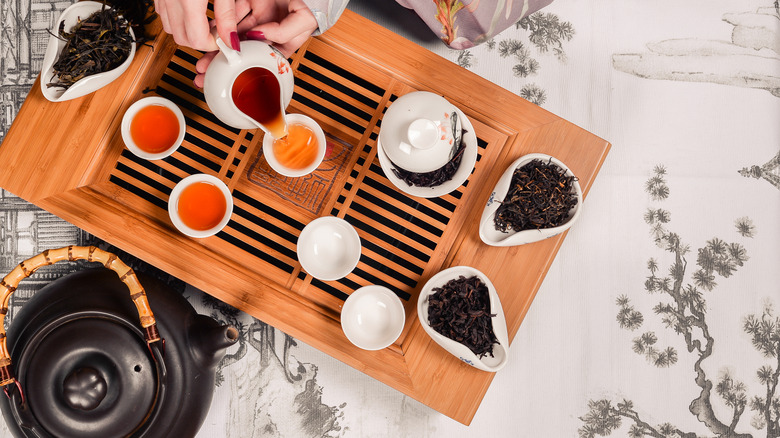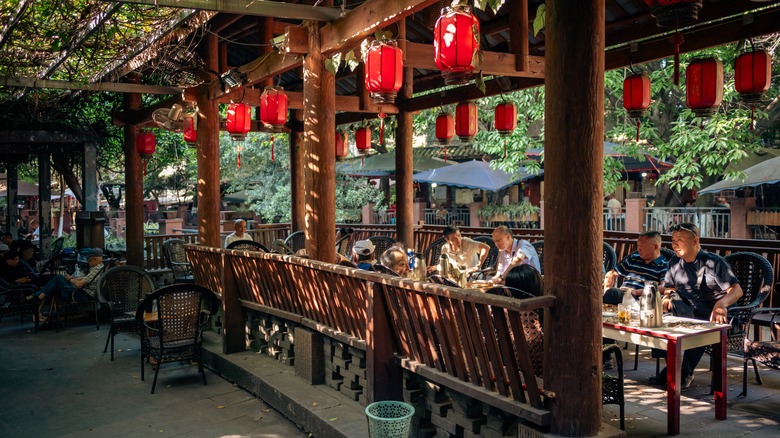The Seemingly Polite Invitation You Should Turn Down While Visiting China
Part of the reason many of us travel to other cities and countries is to make connections with new people. Meeting someone who was brought up in a different culture and has had different experiences is a wonderful thing. However, people are people, and sometimes their motivations aren't positive. It can happen anyplace in the world, but when we're out of our comfort zone, we might be less likely to spot a scam. There is one that sometimes happens in China that you should be aware of, which is known as the tea scam or teahouse scam. This is when a friendly person comes up to you to chat, and offers to take you to a tea tasting. Once you've consumed the tea, you're overcharged by a lot of money and stuck with the bill.
There are several ways this scam can go, and a few variations to look out for when you're visiting this beautiful country. If you know the forms it can take before you visit, you're less likely to be taken in by the tea scam. Here's what you need to know about the seemingly polite invitation you should turn down while visiting China.
All about the teahouse scam
It's a good idea to research different customs and issues you might face before visiting a new country. For instance, knowing the topics to avoid on a trip to China or which articles of clothing to avoid wearing. The tea scam, however, can be hard to spot. The way it usually works is that a person or couple approaches you in a friendly way. (It's often a single, pretty woman who targets men.) They may ask you to take a picture of them or compliment you while striking up a conversation. You might be told that they're studying English and want to practice with you, or that they need help with directions. After chatting for a bit, they invite you to join them for a tea tasting at an authentic teahouse, or say that you can watch a traditional tea ceremony. (Other invitations can include lunch or even a bar.)
You get there, try out the different teas, and when the bill comes it's an exorbitant amount of money. When it's passed to you, you may be too embarrassed to refuse. You might not want to look bad in front of your new friends or be worried about the laws around disputing a bill — or they may have mysteriously disappeared. You end up paying, and now you're out a lot of money. You may have even seen a sign in English warning you about it, but fell for it anyway.
How to avoid this and similar scams
This scam happens most often in touristy areas or big cities. You may also see a variation on this where a friendly stranger invites you to join them for karaoke or go to another tourist spot. It can be worse if you're drinking alcohol as your inhibitions are down. Sometimes you'll be ushered into a back room where other people can't see the scam happening. Yet another version of this trick involves meeting a Tinder date at a bar, restaurant, or teahouse.
The best way to avoid the teahouse scam or similar ones is not to leave where you are for another location with strangers under any circumstances. If this person wants to chat, you can do it where you are. Make sure you know the current exchange rate, and if you do go somewhere (even by yourself), ask for the price upfront. Never tell a stranger — no matter how friendly they are — where you're staying or share any personal information. Any place that has tourists is going to have scams and issues, like, say, being offered a free rose in Italy and then being forced to pay for it. Knowing what may happen before you go and being prepared can keep both you and your wallet safer.


